Writing an apology letter to a professor can feel daunting, but it's an important step in maintaining a positive relationship. Whether you missed an important deadline or spoke out of turn, expressing your regret is essential. In this letter, you'll find a template that helps you convey your sincerity clearly and respectfully. So, let's dive into the details and explore how to craft the perfect apology!
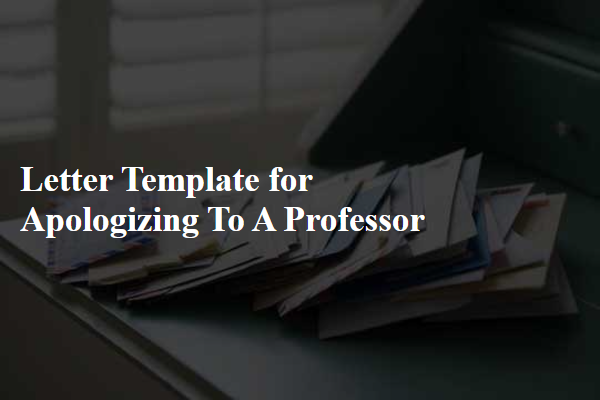
Subject Line Precision
Subject lines in email communications are crucial for clarity. A well-structured subject line should briefly encapsulate the essence of the message. For example, "Apology Regarding Missing Class on September 12" conveys specificity (the date), establishes the context (missing class), and signals intent (an apology). Precision in subject lines can enhance professor-student communication, making it easier for educators to prioritize and respond to messages efficiently. Using a clear subject line also reflects professionalism and respect for the professor's time, contributing to a constructive academic relationship.
Tone of Sincerity
Apologizing to a professor is essential for maintaining respect and credibility in an academic environment. Factors such as missed deadlines, lack of communication, or disruptive behavior may necessitate an apology. Expressing sincere regret emphasizes personal responsibility and the desire for improvement. Acknowledgment of the impact of one's actions on the learning experience demonstrates respect for the professor's time and effort. Including specific details about the incident, alongside a concrete plan for preventing similar occurrences in the future, can illustrate genuine intent to mend the relationship. Ultimately, an apology should embody humility and a commitment to fostering a positive academic environment moving forward.
Clear Explanation of Incident
An incident involving late submission of assignments often leads to academic consequences, particularly in institutions like Stanford University. For example, missing the submission deadline for a crucial essay due on October 15 can disrupt overall course grading. Factors such as unexpected personal issues or illness may hinder timely completion. Professors, dedicated to student success, typically emphasize the importance of adhering to deadlines established in the syllabus. Clear communication regarding such incidents, coupled with a sincere apology, is essential to maintain a constructive relationship with educators who hold expertise in their field.
Expression of Regret
Apologizing to a professor for missed assignments can convey a sense of respect and accountability. An effective apology should acknowledge the specific incident, such as missing a critical deadline for a research paper due on March 15, 2023, due to unforeseen circumstances like illness. Expressing sincere regret demonstrates an understanding of academic responsibilities and the importance of timely submissions. Clarifying the intent to improve, such as committing to submitting future work punctually, signifies a dedication to academic integrity and personal growth. Including a request for guidance on making up for missed work can further illustrate an earnest desire to rectify the situation and strengthen the student-professor relationship.
Commitment to Improvement
Apologies from students to professors highlight accountability in academic settings. A heartfelt acknowledgment of shortcomings demonstrates personal growth. The commitment to improvement signals respect for the professor's time and expertise. Expressing intentions to enhance participation, submission quality, or punctuality helps restore the professor-student relationship. Emphasizing specific actions, such as attending additional office hours or seeking tutoring, illustrates a proactive approach. Encouraging words from a trusted educator can strengthen motivation and ensure future success. Ultimately, these communications build a foundation of trust and reliability in the academic environment.
Letter Template For Apologizing To A Professor Samples
Letter template of contrition to a professor for misunderstanding classroom expectations.
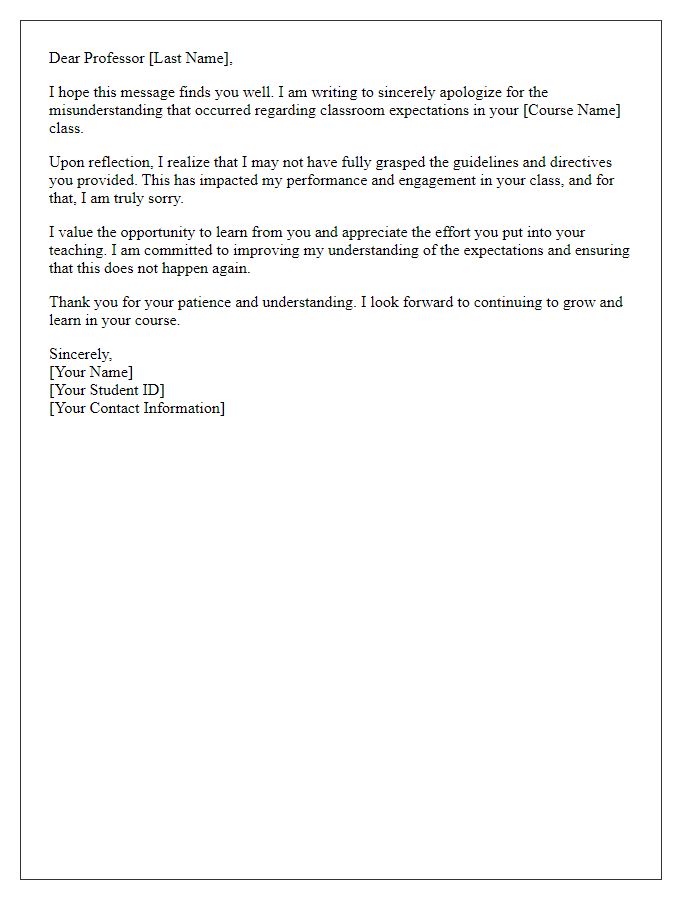
Letter template of formal apology to a professor for inappropriate behavior.
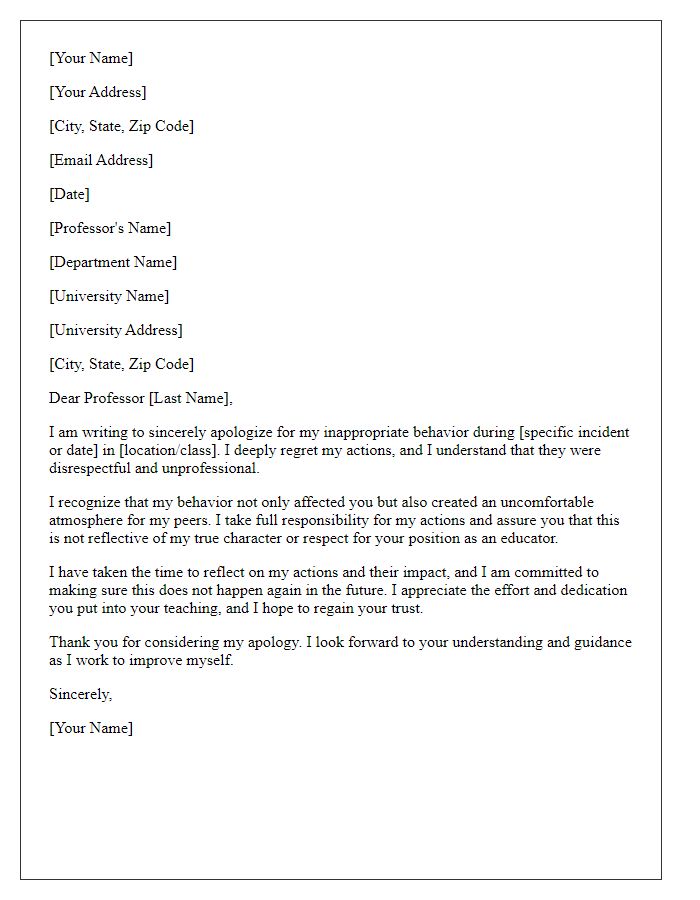
Letter template of heartfelt apology to a professor for not attending office hours.
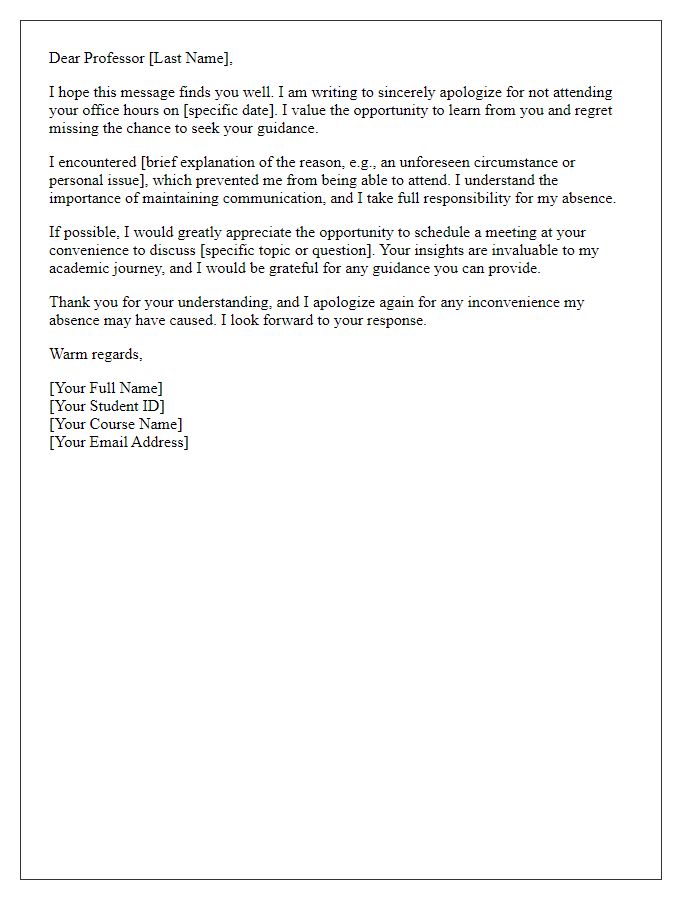
Letter template of remorse to a professor for miscommunication regarding assignments.
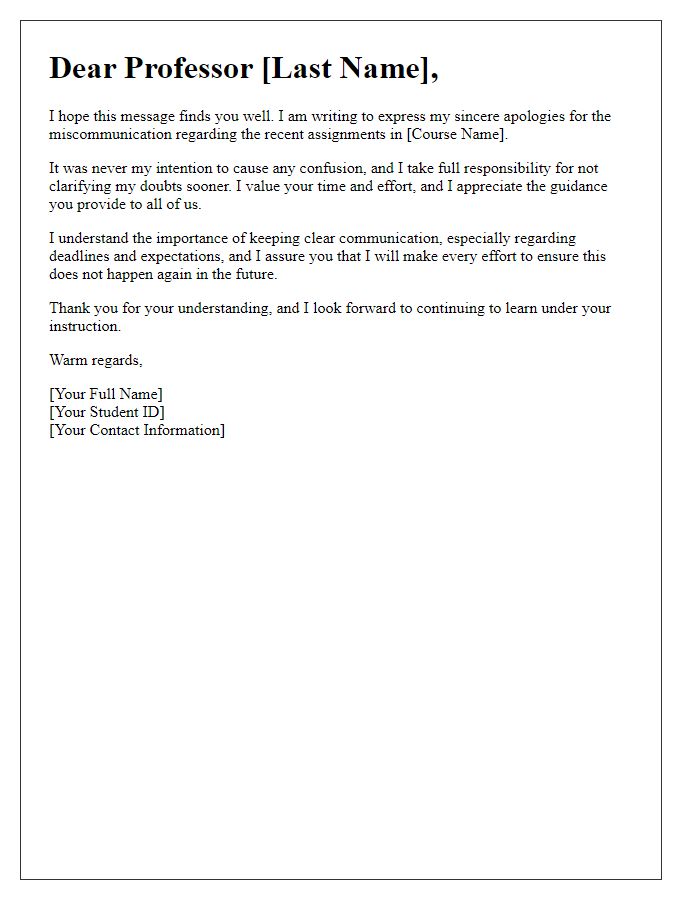
Letter template of acknowledgment to a professor for failing to meet academic standards.
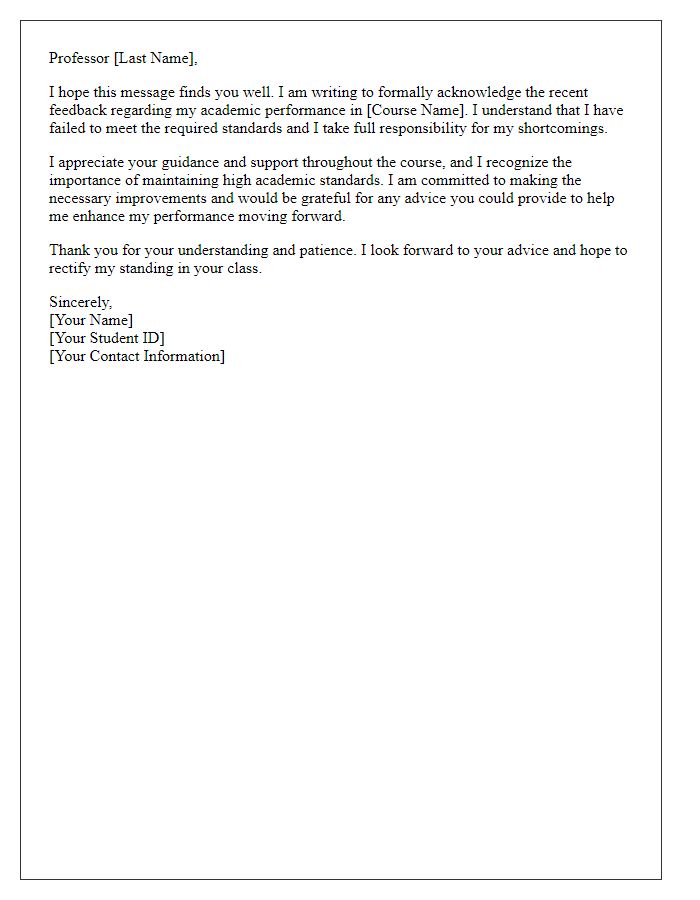
Letter template of regret to a professor for being unprepared for class.
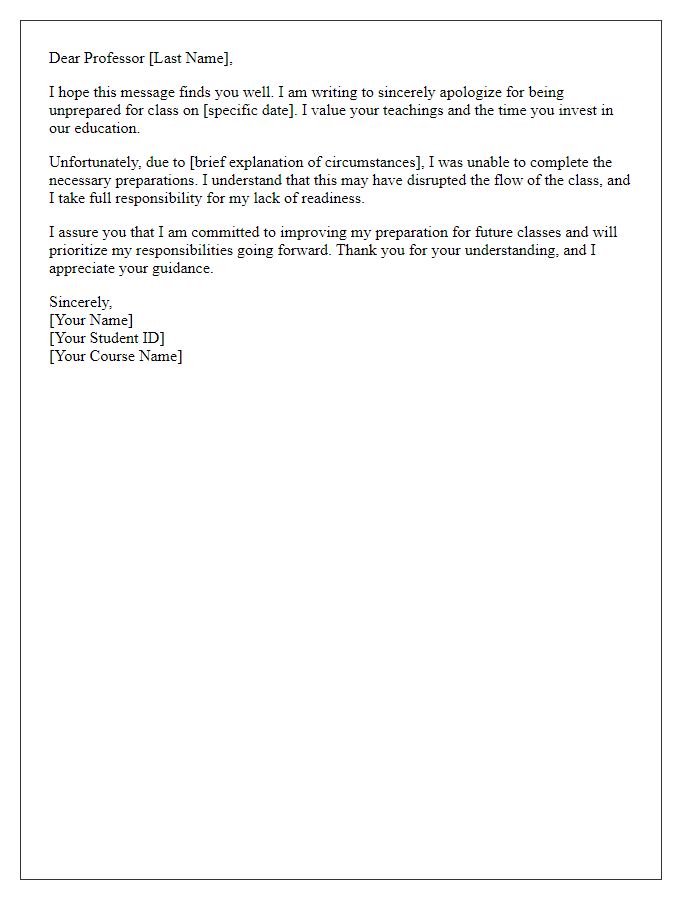
Letter template of apology to a professor for disruptive actions during lectures.
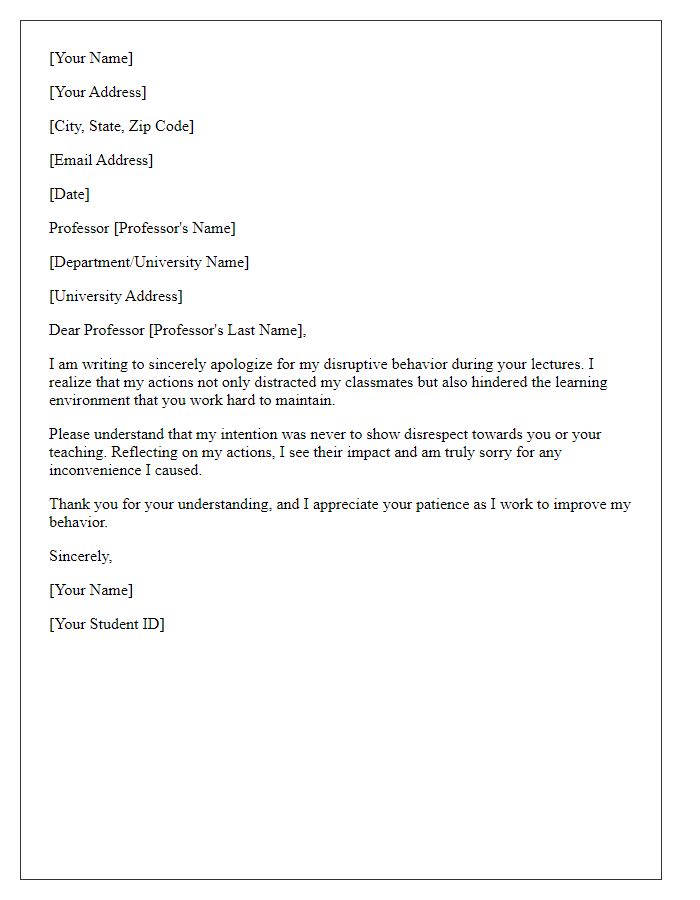

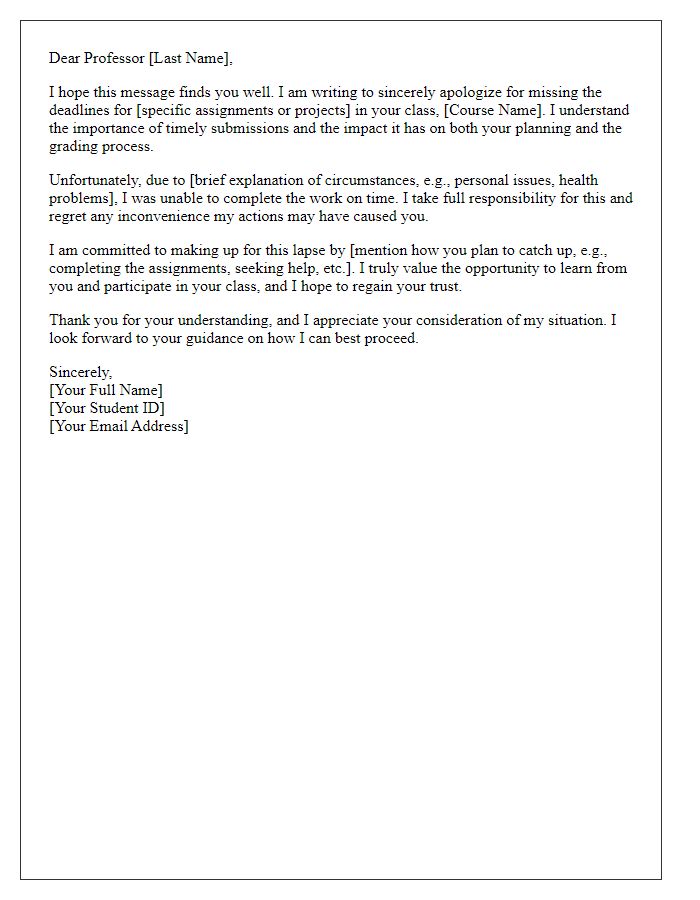
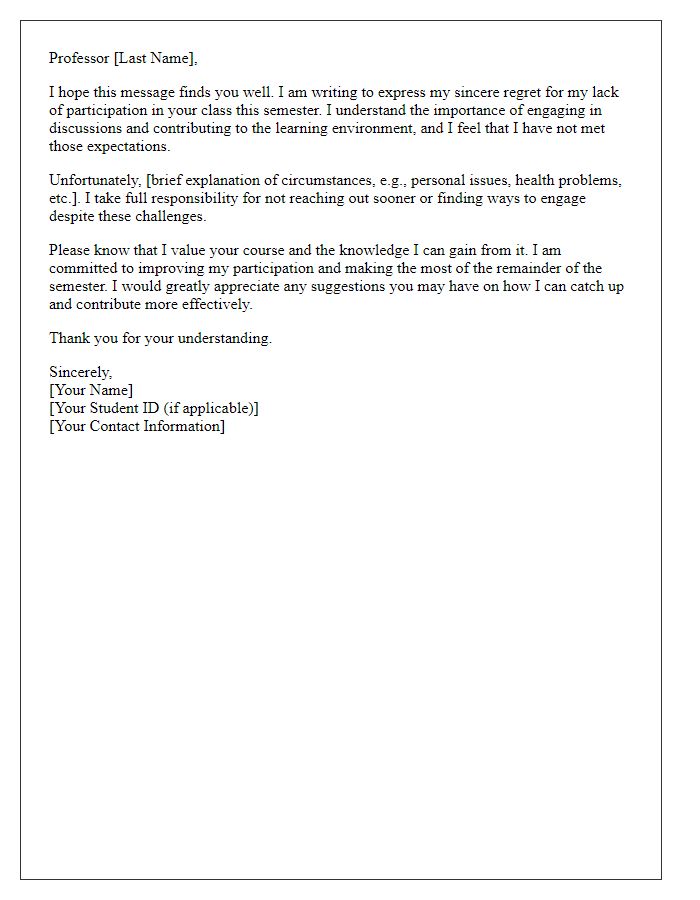
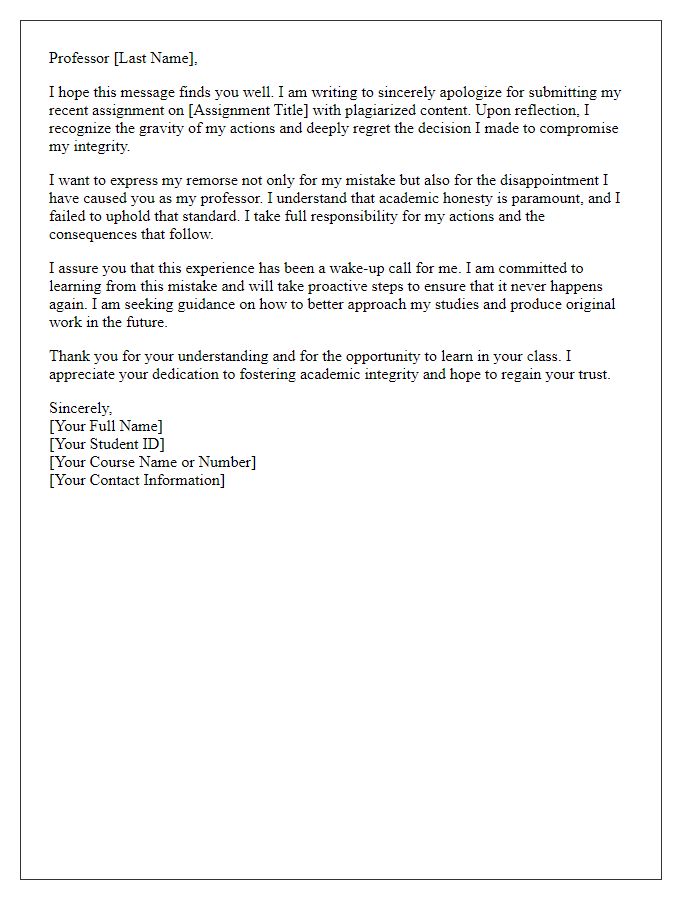

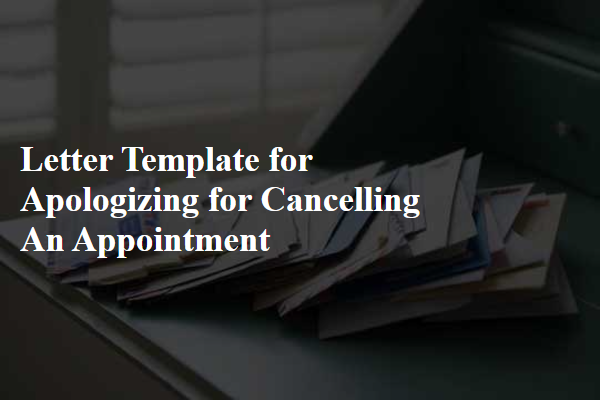
Comments